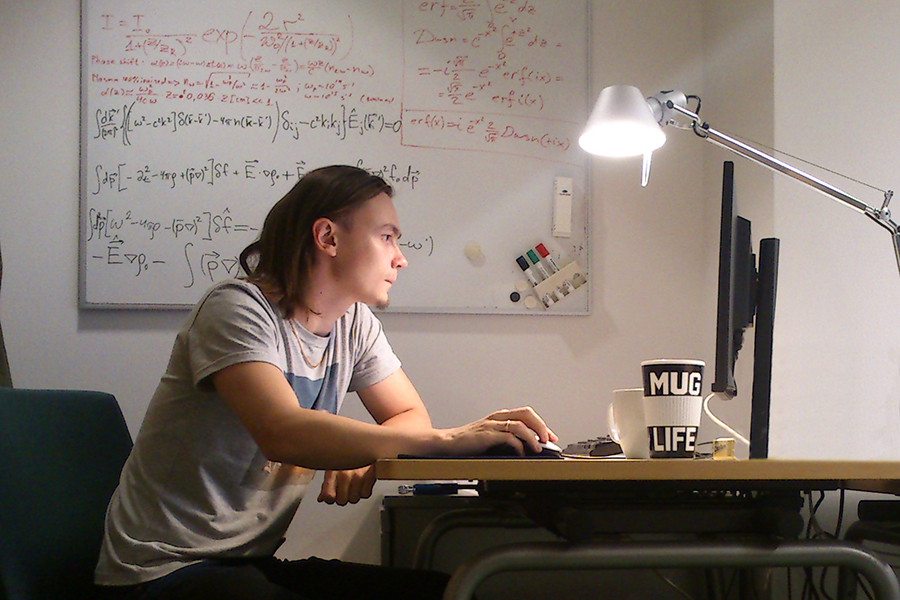Opportunity to work on your project at a major international research centre is a difficult task for the postgraduate of a Russian University. His background should have scientific publications, conference presentations, good knowledge of foreign languages, but even so, you must pass a quite rigorous selection process.
However, it was not a big difficulty for a young scientist of MEPhI, postgraduate of the Department of Theoretical Nuclear Physics Vasily Tulskiy. He became a guest scientist at the Max Planck Institute for the Physics of Complex Systems (MPI PKS) in Dresden, Germany for three months. This spring, he filed an application, received an approval in summer and in the beginning of September arrived at new place of work.

On return Vasily shared his impressions from the trip, told about the experience of working in a multinational team and new results of their research:
– The trip to Dresden became possible thanks to the guest program of the MPI PKS. Currently, my research supervisor, Professor of the Department of Theoretical Nuclear Physics at MEPhI S.V. Popruzhenko and I are working together with colleagues from this Institute.
During three months of fruitful work, being a guest scientist in the project "THz radiation induced by atoms interacting with a strong laser field", we developed approach to solve the problem of low-frequency radiation of the plasma, generated under laser pulse of high intensity. The radiation in the terahertz frequency range has a fairly wide range of applications. For example, it can be used in non-invasive spectroscopy in biology and medicine, in security scanning systems, for building molecules for which the frequency of the rotational transitions lie in the appropriate range, for the generation of spin waves in crystals.
Currently, there is several different schemes of generation of terahertz waves, one of the most promising is based on ionization of the gas environment with strong laser fields. This approach allows to build a compact (table) source of comparatively high power. Recent experiments with the ionization of the gas by two-color laser field (i.e. consisting of a fundamental frequency and its second harmonic, which typically represents about 5% of full intensity) of linear polarization showed the efficiency of the laser energy transfer into the energy of the THz radiation at the level of 0.01%, which is a rather high value, taking into account the greater capacity of the initial laser pulse.
Last year the Chinese experimentalists proposed an approach with the use of circular polarization instead of linear ionization field leads to a significant increase of the THz radiation intensity. This phenomenon was described theoretically during my visit to Dresden. The results were presented at the conference of Atomic Physics 2017 Workshop held in MPI PKS from 27 November to 1 December. In the future I plan to continue working in this direction, improving and updating our model to find the parameters that are optimal for future experiments.
I would like to note that the Max Planck Institute provided the perfect work place, possibility to rent a room in a guest house on campus and a monthly scholarship of €1365. Also guest staff program helped to make the necessary health insurance. A nice bonus was the opportunity to participate in all the domestic conference without payment of registration fee.
Working at MPI PKS, I plunged into a very diverse multinational team. In my office were postdoctoral fellows from India, Vietnam, and China. If you have any questions or problems everything can be resolved quickly and easily. In addition to working on their own task, we also discussed each other's projects, consulted, and shared experiences.
Every Monday we gave presentations at the seminars of the research group, talking about current success in our task and future plans. These workshops are extremely useful because they can give valuable comments and advice.
In general, the work in Dresden has made me a very positive impression. Good working place with easy access to all necessary programs, a strong network of supercomputers – all of this has allowed me to substantially advance at solving my tasks and gave fertile ground for further research. In addition, this visit was certainly a valuable experience of living in another country and work in an international team.





